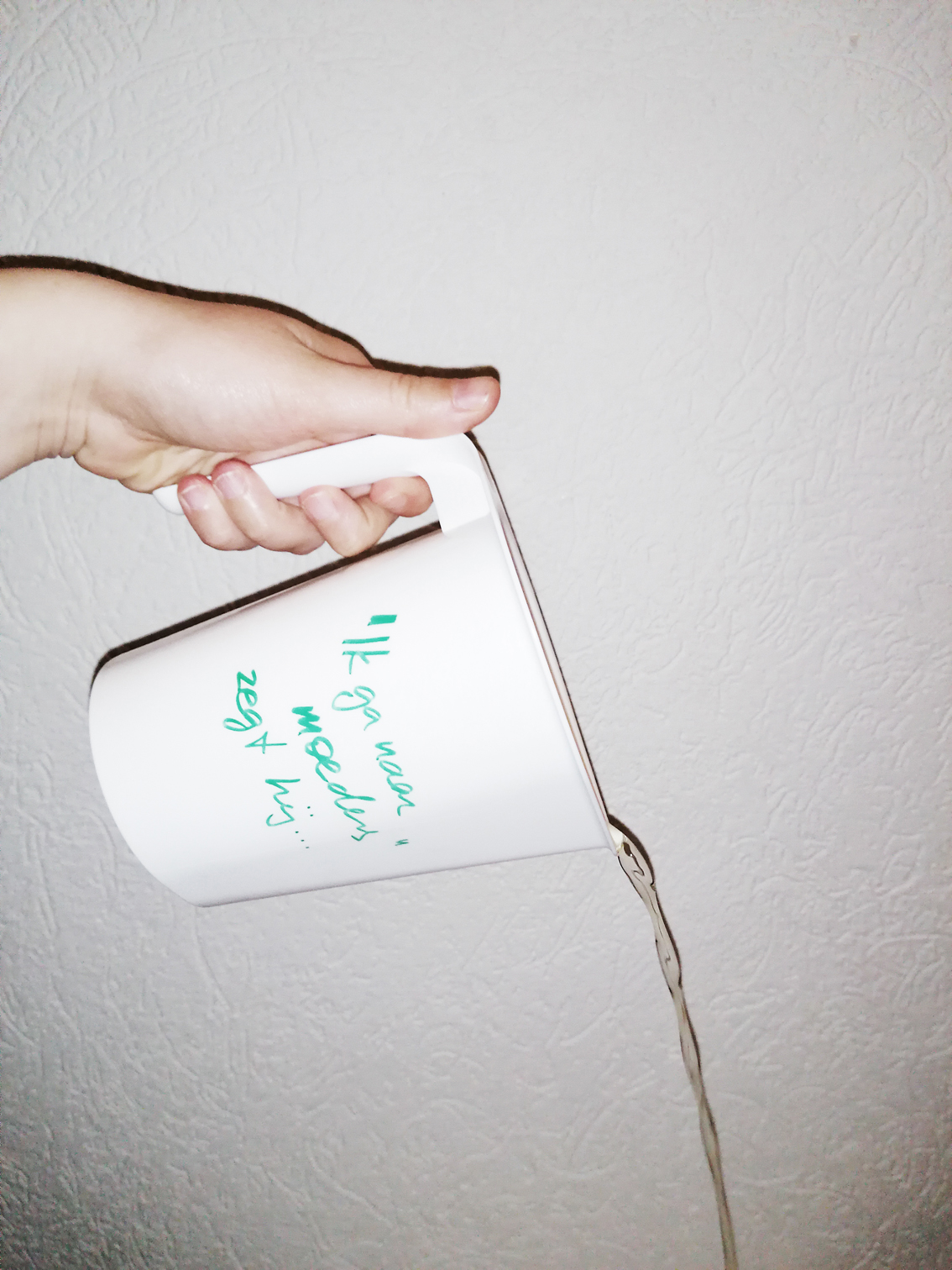¨mothers for mothers¨
The performalist self-portrait, depicting Yelena pouring urine from a white jug with the text “Ik ga naar moeders, zegt hij¨ (I’m going to mother’s, says he), offers a sharp feminist critique of the Moeders voor Moeders (Mothers for Mothers) initiative. This program, organized by the pharmaceutical company Aspen Oss B.V., collects urine from pregnant women to extract the hCG hormone, used in fertility treatments. While the initiative appears altruistic, Myshko challenges the exploitation of women’s bodies and solidarity within a profit-driven system. The white jug symbolizes domesticity and the traditional role of women as caregivers, suggesting that participation in the program is presented as a natural duty. The mundane symbolism of the jug sharply contrasts with the complex ethical questions surrounding the commercialization of this so-called "gift." The text on the jug, referencing the anecdotal origin of the Moeders voor Moeders (Mothers for Mothers) name, highlights the patriarchal roots of the project. It originated in male-dominated spaces where women’s contributions were reduced to raw commercial material. What makes Myshko’s work powerful is how it exposes the power dynamics underpinning the initiative. Women receive a synthetic baby blanket and a mommy magazine in exchange for their participation, while Aspen Oss B.V. profits from their biological contributions. There is no financial compensation, as the initiative hides behind a facade of altruism and solidarity. Myshko invites us to critically examine how capitalist and patriarchal systems exploit women’s bodies with minimal acknowledgment of their contributions. Her work serves as a protest against the appropriation of solidarity for profit, calling for a more ethical and just approach to initiatives that rely on women’s participation. It challenges viewers to question the true beneficiaries of such programs and the systemic inequalities they perpetuate.
